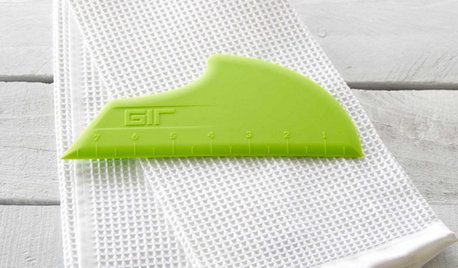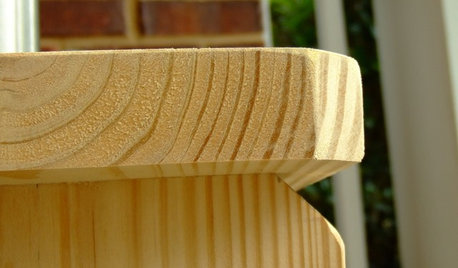Speeding Up Composting
rocksinthehead
10 years ago
Related Stories

ORGANIZINGGet Up to Speed for Back to School — 12 Tips for Smooth Sailing
New schedules and clothes, paperwork piles ... and where did all the Band-Aids go? These tips will help you ace the new school year
Full Story
GARDENING GUIDESGet on a Composting Kick (Hello, Free Fertilizer!)
Quit shelling out for pricey substitutes that aren’t even as good. Here’s how to give your soil the best while lightening your trash load
Full Story
COLORSpeed-Dial Color Selection to Get the Best Result
You’ve belabored your color decisions and are still stuck. Here is how to evaluate your space and make choices that are right for you
Full Story
DECORATING GUIDESRoom of the Day: Changes Come at the Speed of Life
An interior designer reacts to a family’s evolving needs in designing rooms that include a living room and entryway
Full Story
LANDSCAPE DESIGNIs Your Garden Minding the Viewing Speed Limit?
Follow these signposts to steer garden viewers toward an experience they can fully appreciate
Full Story
SHOP HOUZZShop Houzz: Save up to 45% on Kitchen Necessities
Furniture, essential tools and other elements to get your kitchen up to speed, on sale now
Full Story0

KITCHEN DESIGNHouse Planning: How to Set Up Your Kitchen
Where to Put All Those Pots, Plates, Silverware, Utensils, Casseroles...
Full Story
ORGANIZING‘Tidying Up’ Author Marie Kondo Tells How to ‘Spark Joy’ at Home
A new book from the author of ‘The Life-Changing Magic of Tidying Up’ delves deeper into her KonMari Method of decluttering and organizing
Full Story
DIY PROJECTSCutting Corners: Miters Spruce Up Woodworking Projects
These basic woodworking cuts add another dimension to simple corners
Full Story
EXTERIOR COLORThe Joyful Exterior: Perk Up Curb Appeal With a Splash of Green
You may not want to douse your whole house with it, but green can work wonders as an exterior accent color
Full Story


JonCraig
Kimmsr
Related Professionals
Fillmore Landscape Architects & Landscape Designers · Foothill Ranch Landscape Architects & Landscape Designers · Manchester Landscape Contractors · Bergenfield Landscape Contractors · Bowie Landscape Contractors · Dudley Landscape Contractors · Haverhill Landscape Contractors · Nashua Landscape Contractors · Santa Maria Landscape Contractors · The Woodlands Landscape Contractors · Shorewood Decks, Patios & Outdoor Enclosures · Bloomington Decks, Patios & Outdoor Enclosures · Columbia Decks, Patios & Outdoor Enclosures · Philadelphia Decks, Patios & Outdoor Enclosures · Saint Louis Park Decks, Patios & Outdoor Enclosurestoxcrusadr
rocksintheheadOriginal Author
Kimmsr
lazy_gardens
lazy_gardens
toxcrusadr
rocksintheheadOriginal Author
GreeneGarden
rocksintheheadOriginal Author
rocksintheheadOriginal Author
rocksintheheadOriginal Author
Kimmsr
seysonn
Kimmsr
lazy_gardens
seysonn
Kimmsr
toxcrusadr
seysonn
toxcrusadr
seysonn
toxcrusadr
GreeneGarden
Kimmsr
toxcrusadr
seysonn
GreeneGarden
Kimmsr
GreeneGarden
toxcrusadr
GreeneGarden
watermanjeff
Kimmsr
seysonn
dwighthe
GreeneGarden
toxcrusadr